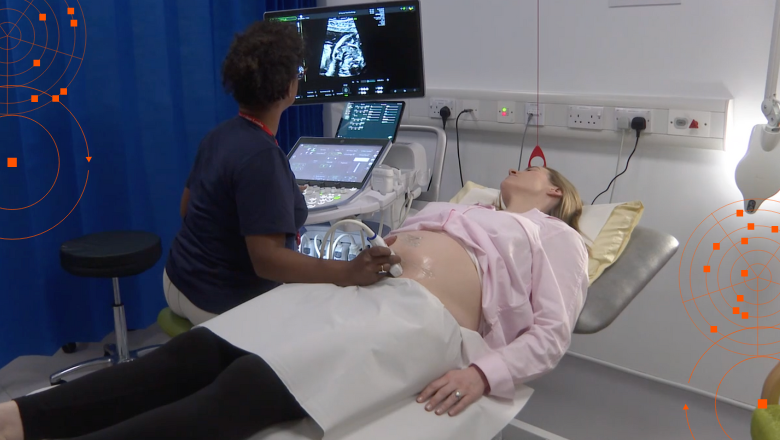This work is about more than faster scans; it’s about empowering clinicians and parents with clearer insights at a pivotal moment. By combining cutting-edge AI with sonographer expertise, we’ve shown it’s possible to enhance both the accuracy and experience of pregnancy screening. We’re proud to see this research begin to translate into real-world impact, and grateful to the families, clinicians and researchers who made it possible."
Dr Jacqueline Matthew, Co-Founder of Fraiya, Clinical Research Fellow and Sonographer, School of Biomedical Engineering & Imaging Sciences.
10 September 2025
Spinout team awarded £1.75 million NIHR grant for AI-powered fetal ultrasound trial
In a significant step forward for maternal healthcare, King's spinout Fraiya Ltd has secured a £1.75 million grant from the National Institute for Health and Care Research (NIHR) to explore how artificial intelligence (AI) can improve fetal ultrasound screening. The project, led by Professor Reza Razavi and Dr Jacqueline Matthew, will evaluate the effectiveness of AI-assisted anomaly detection in pregnancy scans across multiple NHS sites.

With congenital abnormalities affecting roughly 2% of pregnancies in the UK, timely and accurate detection is critical for better neonatal outcomes and informed parental decision-making. However, current screening methods miss a substantial number of cases, with detection rates varying significantly by region.
This disparity has driven the push for AI-powered tools that could provide more consistent and accurate results. The research team, which includes experts in medical imaging, health economics, and clinical trials, will assess the efficiency, cost-effectiveness, and real-world feasibility of AI-assisted fetal anomaly detection.
The study, which will run for 27 months and is due to roll out to clinics in November 2025, will test an AI-enabled workflow integrated with a remote expert review system. Over 9,500 pregnant individuals will participate in the trial across four NHS Trusts – Guy's and St Thomas', Lewisham and Greenwich, Liverpool Women’s and Royal Devon University Healthcare – comparing traditional ultrasound scans with AI-supported screening.
The AI system, developed by King's School of Biomedical Engineering & Imaging Sciences spinout company Fraiya, will automate image collection and measurement, aiming to reduce scan times and improve diagnostic accuracy.
The project also has a strong focus on public and patient involvement (PPI), with an advisory group helping to shape the research. Stakeholders will include NHS clinicians, patient advocacy groups, and members of the public with lived experience of antenatal screening.
Beyond clinical impact, the research includes a detailed health economic evaluation, led by Dr Anna Barnes at the King’s Technology Evaluation Centre (KiTEC).
By analyzing NHS resource use, potential cost savings, and long-term patient outcomes, the team aims to provide a roadmap for national and international adoption of AI-assisted screening tools. The grant success follows previous trials demonstrating AI’s potential to improve workflow and reduce cognitive load for sonographers.
With Fraiya’s involvement in the London Institute for Healthcare Engineering’s MedTech Venture Builder programme, the project aligns with a broader strategy to translate medical AI innovations into real-world healthcare applications.
If the trial proves successful, the AI screening tool could be integrated into NHS workflows, leading to a nationwide shift in fetal anomaly detection. The results, expected in early 2027, could also influence global standards for prenatal care.
Although many AI tools have been developed for medical imaging applications, very few are being evaluated prospectively. We are excited to run this large randomised control trial of FraiyaScan and FraiyaDetect to see the clinical and health-economic impact in a real-world setting."
Professor Reza Razavi, Co-Founder of Fraiya, Professor of Paediatric Cardiovascular Science, School of Biomedical Engineering & Imaging Sciences.



